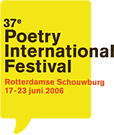Poet
|
Kedarnath Singh 1934-... country: India language: Hindi |
spent many years teaching at the University of New Delhi. In his poems, he explores the relationship between man and nature. His work is generally acclaimed for its lyrical quality. Kedarnath Singh has translated Brecht, Baudelaire and Rilke into Hindi. Kedarnath Singh was born in 1934 in a small village in northern India, the Hindi heartland. He worked as a teacher of Hindi and university lecturer in several cities, including New Delhi, where he has been living for the past 25 years. Before that he lived for many years in Benares (Varanasi) a city which, he says, deeply affected his sensibilities. ‘Benares is like a kaleidoscope before your eyes: the river Ganges, the people, the music, the fact that Buddha held his first sermon there…’ He says his own family is probably related to the Buddha’s. The Buddha has come to feature frequently in his recent work, e.g. in the cycle of poems entitled ‘Tiger’, in which the Buddha – sheer compassion – and the tiger – sheer hunger – cross each other’s paths without ever actually meeting. Kedarnath Singh is a celebrated, prize winning poet, with seven collections of poetry to his name. He is also a literary critic and an editor of the journal Shabd (Word). Since the late 1950s he has been regarded as an exponent of ‘the new poetry’, as well as a member of the group of ‘progressive writers’. He is known for the simplicity and clarity of his style. Kedarnath says one of his main themes is the field of tension (and occasional overlap) between nature and rural life on the one hand and urban life on the other. A good example is his poem ‘Broken Truck’, in which the overgrown cadaver of a stranded truck at the entrance to the village makes the poet wonder if without this beacon he would have any idea where his home is. Not only in the matter of ‘nature and city’ but also in other realms we often find in Kedarnath Singh’s work the description – sometimes the synthesis – of apparent contrasts, for instance between the present and ‘the racial memory’, or between poetry and daily reality. Author: Annette van der Hoek Translated by Ko Kooman Poets: |


